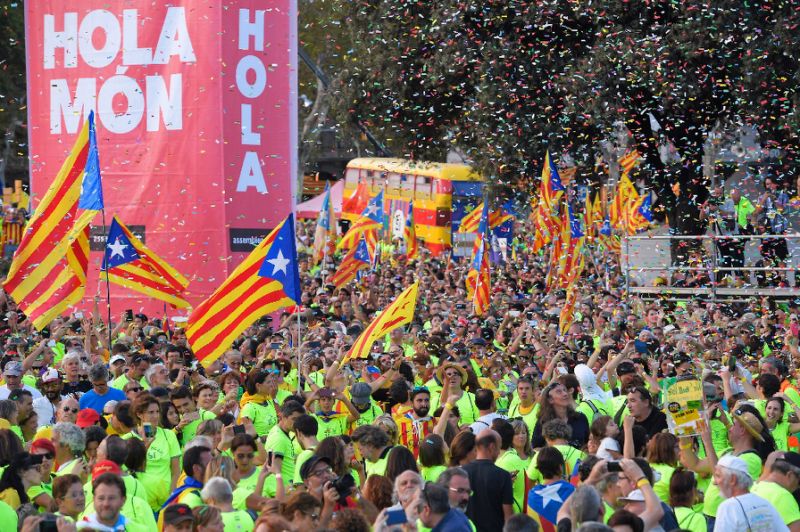The democratic crisis in Catalonia is an example of what not to do when dealing with a democratically elected separatist government.
The Catalan referendum, scheduled for October 1st, was prohibited by the courts and deemed unconstitutional. Madrid decided to enforce the ruling and sent security forces to Barcelona to seize the 10 million ballots and arrest regional government officials.
While the Catalan regional government has acknowledged that the holding of the referendum was compromised, Carles Puigdemond, the president of the Catalan government, has pledged to move forward.
The Catalan nationalists and independentists are no longer the only ones to oppose the Rajoy government. Thanks to Madrid's heavy handed intervention, the whole region seems to be uniting. Meanwhile, pro-democracy protests are spreading, not only in Catalonia, but across Spain and even into France and elsewhere in Europe. Many demonstrators are brandishing the Catalan flag while the crowd is chanting "Si a la democracia".
In Canada, the Parti Québécois is strongly denouncing what is happening in Spain. PQ Leader Jean-Françcois Lisée is attacking both Justin Trudeau and Philippe Couillard for their silence. Some péquistes are even linking what is happening in Catalonia to Canada's approach to Quebec's secession under the Clarity Act. The PQ sent an emissary to Barcelona, and separatists of all stripes were out en masse to a protest in front of the Spanish consulate in Montreal: Lisée, of course, but also Bloc Québécois leader Martine Ouellet, former Leader Gilles Duceppe, Québec Solidaire co-spokesperson Manon Massé, and many more.
Madrid has succeeded in turning the issue of Catalonia's independence into a question of basic democracy, converting many Catalans to the independence cause in the process. They may have reached the point of no return.
If the referendum seems difficult to maintain under the current conditions, which was the objective of Madrid, it is now facing even more virulent opposition. A month ago, it was far from clear that Catalans would have voted in favour of independence. If somehow a vote is actually held on October 1st, it is virtually guaranteed that they would.
In Madrid, the Socialist Party, the first opposition party, supported the conservative People's Party in power to defend the rule of law, as did the centrists of Ciutadans, a party born in Catalonia to fight the separatists.
But that support is threatened as the separatist movement grows, and if blood is shed, the Spanish government would lose the confidence of the assembly. Meanwhile, hard liners within his own party are calling on Rajoy to send in the army and are strongly opposed to any concessions to Catalonia. Other regions of Spain are also not inclined to hear the Catalan claims because it would threaten the benefits they are getting from Spain's equalization rules of redistribution of wealth.
And while Mariano Rajoy now says he is ready to discuss with Catalonia within the constitutional framework. It might be too little, too late.
Photo Credit: Yahoo









